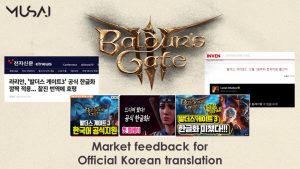[MUSAI] Localization Recruiting Ep 2. How to Find the Best Localization Vendors for Your Game
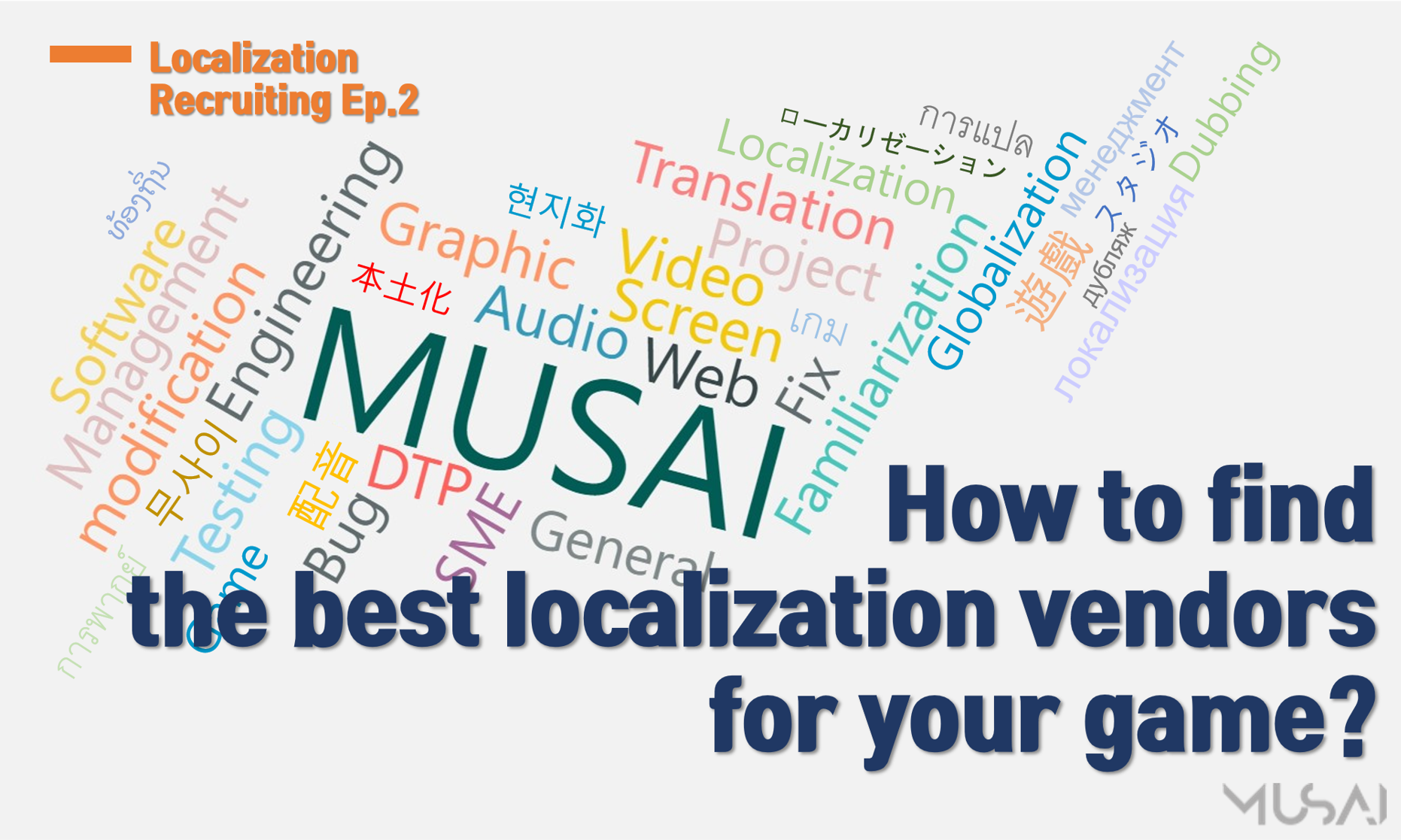
2020-09-28
There are tons of things to be considered for game development, but the target market must be one of the top priorities on the list from the very beginning. Once you decided global launch, the next step is ‘where to go’ – your game may target one or two specific markets, or it can be designed for multiple markets. No matter where you decide to go, you need a localization process as you know. Especially, when you need to localize a variety of languages, your concern may get deeper where to start and who should be with. You may want to work with a large-scale localization company or prefer to deal with freelance translation resources directly. Here is the guide on how to find suitable localization vendors when you need localization into multiple languages for your game.
Part 1. Work with MLV, vendor managers will help you!
The easiest way is to use a service from MLVs (Multi-Language Vendors), offering a wide range of localization service into multiple languages. There are multiple merits when you work with MLVs, but we will focus on the merit of “vendor management” since today’s topic is recruitment.
You can find many MLVs internationally, and they usually have a person in charge called ‘vendor manager’ regardless of the size. (Sometimes vendor managers are called in a different way such as resource manager, outsourcing manager or procurement manager, but all they mean a same position.)
Their role is to discover new vendors and manage their performance. The vendor can be both an individual freelance translator and a translation company of the target language. To be more specific, vendor managers identify the qualification of candidate vendors through sample translation test, negotiate the rate, and gather the internal and external opinions to evaluate their achievement. Eventually, vendor managers are responsible for maintaining the relationship with vendors and ensure their obligation to provide a best service with a reasonable price to the clients.
Since the role of vendor manager is not widely known, sometimes there is a misunderstanding that MLVs only take a benefit between clients and vendors. However, once you recognize that the process to find qualified resources and maintain the relationship requires a chunk of time and effort, you will agree with the importance of vendor managers.
Part 2. How to find localization vendors directly
1. Web Search
Web searching is the most common way to search for something but there are too many companies to figure out which one is good or not. There are three tips we would like to recommend. First, find out if the localization company only focuses on GAMING contents. It’s suggested to avoid a company who deal with all kinds of materials without its own specialty.
Second, make sure that the company is located in the region using the target language as a native. (Here is a sample. We, Musai Studio is the partner located located in Seoul, Korea and specialized in Korean and Asian languages.) Besides, it should be the company giving a localization service into one or two languages with expertise. It’s not difficult to find a localization agency to deal with many languages, but what we are looking for is an expert of the target language.
Lastly, check out the portfolio including the representative titles and projects the company involved in. The portfolio can be doubtful if it includes too many famous titles. In this case, it’s important to note their business year. For example, if you find a start-up company with a splendid portfolio filled with famous old titles, you should make sure whether it is their actual project or their staff-translators’ portfolio.
2. Vendor Directory
Global localization media have a vendor directory, a list of companies providing localization services and their contact information. For example, ‘MultiLingual’ have a ‘Vendors & Organizations’ in the ‘Resources’ section ( https://multilingual.com/vendors-and-organizations/), a searchable directory organized by categories. However, there is no category about game-focused one so further research is needed.
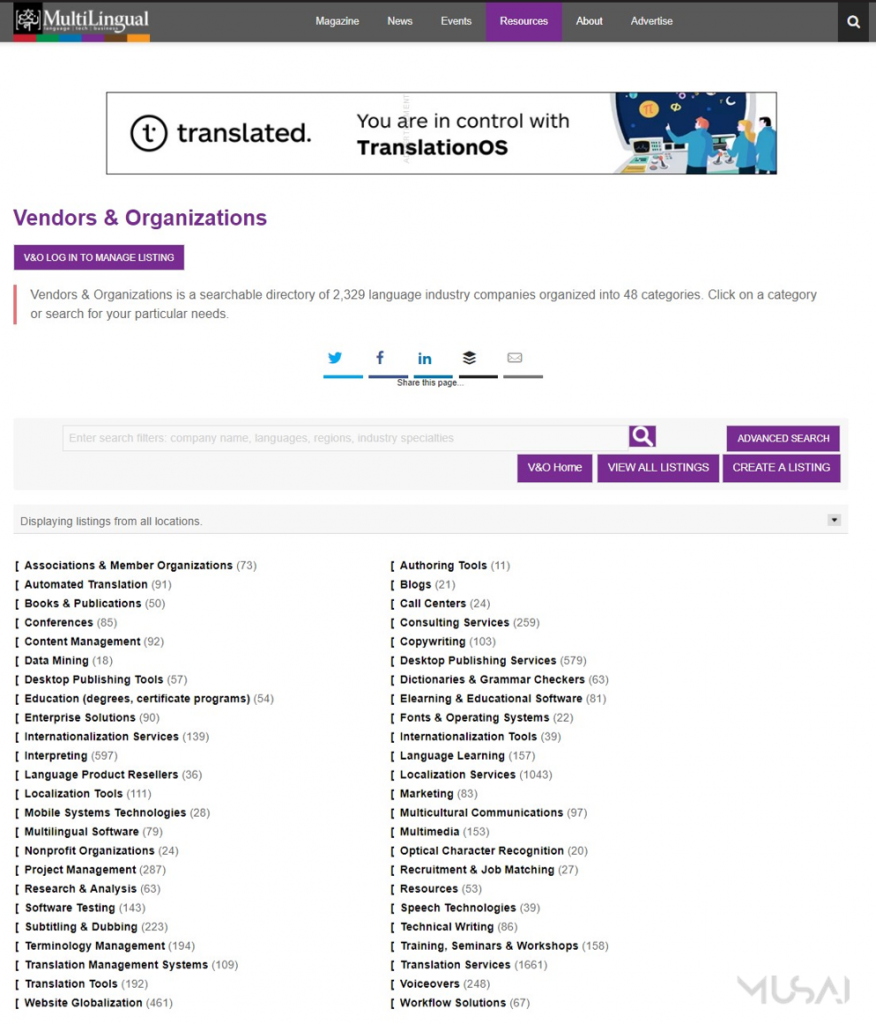
3. Game Exhibition
Localization companies who participate in the international game exhibition such as E3, Gamescom, and TGS are mostly specialized in gaming contents. (And that’s what we are looking for!) You can either participate in the game show and have a meeting with them directly or identify the list of localization industry participants through the official website of the show and contact them individually.
4. Localization Crowdsourcing Platform
Localization crowd-based sourcing platform is an emerging market to find vendors. For example, ‘SMARTCAT’ has a ‘Vendor Market Place’ linked in CAT-tool, sourcing a new translation vendor. Some of MLVs such as ‘Welocalize’ also provide a crowd-based service.
These platforms have a group of freelancers than vendors. And you may not see that the vendors from those platforms are fully qualified, so further tests will be needed as well.
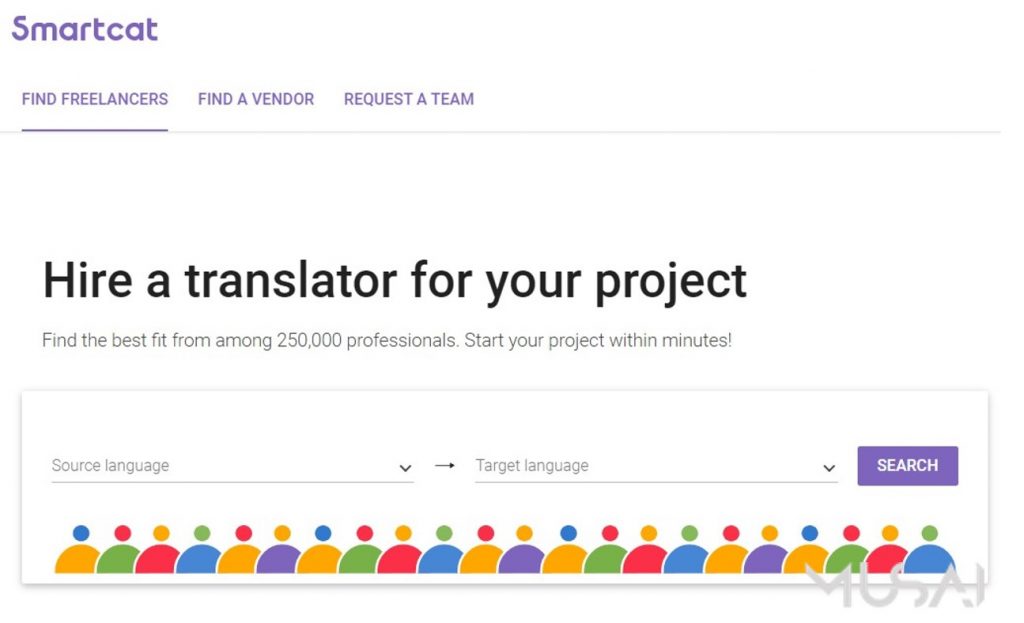
5. Community
This community was started by indie-game developers to find a translator freely and has been bigger with more demands. Advertisement by localization companies has been seen more often though. (https://www.facebook.com/groups/indiegamelocalization/ )
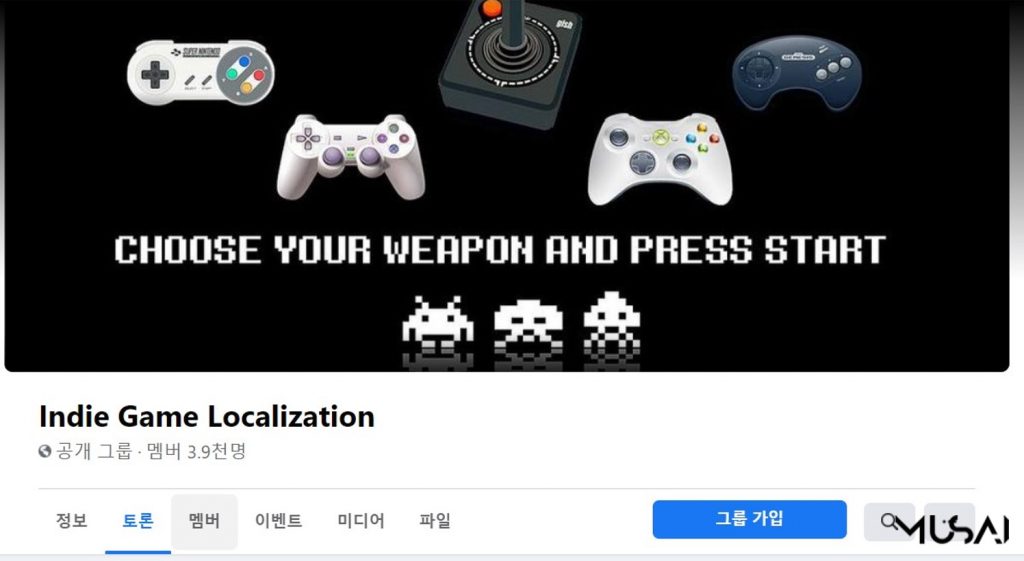
6. Recruiting
When you are looking for a freelance translator, not an enterprise, recruiting platform can be helpful. Post a job opening by each language you are seeking for and gather candidates directly. In this case, there should be a person in charge of recruitment ranging from reviewing the resume and evaluating the candidates. Local recruiting platform is efficient to find appropriate translators, but the native staff who manages these recruiting process is required.
Part 3. We found it! Then, how do I know if they are good or not?
Good point! That’s why you should find a reviewer or an organization who able to evaluate the output from the vendors as well.
The reviewer/company should be qualified and experienced in the localization industry since their evaluation will affect the final quality of the project. As for gaming contents, it’s easier than any other genre to be reflected the preference of reviewers so their expertise is very highly important.
Without a reviewer, you can evaluate the quality through the feedback from the linguistic QA or fun QA. However, those QA is the end-process before launching. If the feedback reports problems and quality issues, it can be a critical problem for the launching schedule.
BOOST YOUR PLAY! Musai Studio





